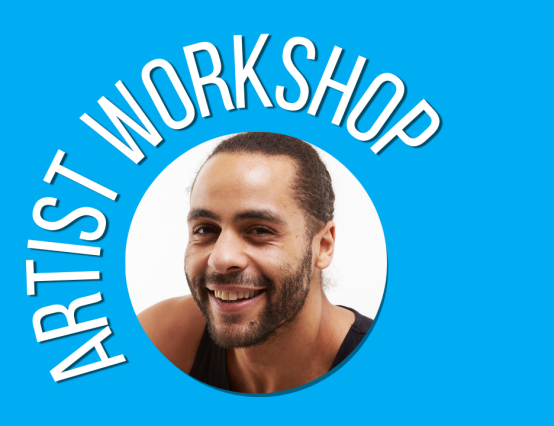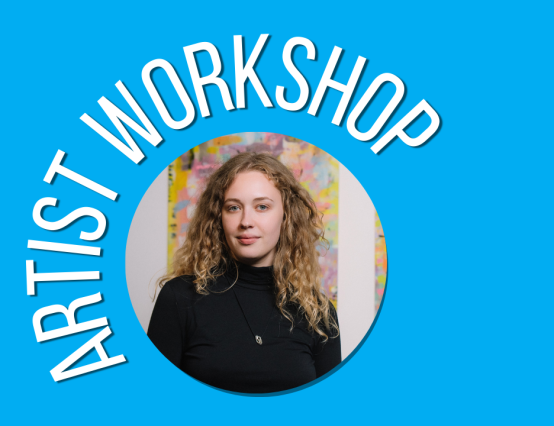1. Find an arts issue
First thing’s first. You’ll be researching, questioning, writing about this arts issue for a significant chunk of time - don’t chose something which will create more zzz’s than research documents.
So, take a step back from your Arts Award mindset and consider: what arts issue particularly intrigues me?
Remember - this debate doesn’t have to directly link to your final project for the Gold award. For example, if you’re focusing on theatre and dance for your main project, you could still look into the impact of technology on contemporary literature, or the debate about graffiti: art work or vandalism? The more diverse your award, the better!
If you’re struggling for inspiration, then really let your mind wander next time you go to a bookshop, theatre, dance studio, nature reserve, gallery, museum… More often than not, the questions we ask ourselves day-to-day can form a fascinating research project.
2. Fire up the stat canon
Once you’ve chosen your debate, it’s time to head to the library, a coffee shop or scroll through Google on your phone. It’s research time.
It may be a bright idea to look at some statistics to give your debate some context. However, try to use these sparingly to give extra impact and emphasis to those numbers. Back up the statistics with arguments from both sides. Is there evidence to suggest that a particular trend is changing in recent years, or do the numbers match your own view on the debate?
If your arts issue is particularly topical, you may find that a famous artist or public figure has commented their views. Quotes from such individuals may help to reinforce certain arguments.
“Research is creating new knowledge.” - Neil Armstrong
3. Delve into primary research 💻
In order to guarantee a range of viewpoints, ensuring your debate is lively and engrossing to readers, why not send out a questionnaire or survey?
If there’s one thing that will really make your debate stand out, it’s primary research. The views of your friends, family, colleagues and peers will help to give full breadth to your argument.
A plethora of options are available to tailor your survey. You could use a Google poll, post on Facebook, use the Instagram poll stories tool, or even construct your own questionnaire and send out an email-en-masse.
4. Go for it - explore the debate 📝
Now consider all sides of the argument. Both your Internet/book research and primary research will help here - it’s time to build that debate right up!
Remember - it’s crucial you consider all opinions relevant to your arts issue. Maybe you don’t agree with many of the viewpoints and that may be preferable - what better way to hit your own opinion home than to logically dismiss the other arguments?
In order to make the most of your primary research, try to elaborate on any viewpoints expressed within questionnaire responses. Do you agree or disagree with these answers? Can you find any evidence in your research to prove or disprove these ideas?
Whilst you may have begun with your own set of viewpoints, it could be that alternative claims have broadened your own mindset. If so, perfect! A revised opinion is just the kind of thing to explore in your project overview and reflections.
5. Come to a conclusion
Now you’ve finished setting out a balanced debate, it’s time to solidify your own opinion. Often, this is a combination of all viewpoints. Answers to questions in the arts are rarely binary!
A conclusion justified with primary and secondary research will no doubt impress your readers. Why not make it personal? You could add in what has surprised you along the way. Is there a particular point that struck you and is worth hitting home one last time?
6. Another pair of eyes 👀
By now, you’re probably so invested in your arts debate that it may be difficult to eye-out any potential flaws. Asking someone else to proof-read your work to spot any argument holes or misspellings can help solve any glitches.
7. Share!
Your arts debate is complete! Hurrah! Now all that’s left to do is upload, share, and encourage a whole lot of peer review…
Ask for honest feedback from your peers. Did anything surprise them about the viewpoints within the debate? How could you have made more coherent points? Receiving constructive criticism is all part of the Gold Arts Award journey to help you become a more well-rounded artist.
We think the best way to do this is to upload your work to Arts Award on Voice and encourage fellow Arts Award companions to read, review and share on social media.









0 Comments